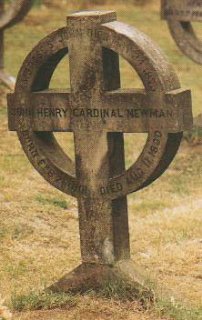
In hoc signo vinces.
Europe is haunted by the shadow of the Emperor. One senses his absence just as vividly as in former times one sensed his presence. Because the emptiness of the wound speaks, what we miss knows how to make us sense it.
Last month Pope Benedict visited England to reclaim Britain for the Roman Empire. The particular circumstances are irrelevant. What would have been unthinkable not so long ago, became possible. The ultimate path of Britain was set the day of its schism. Its monarchs no longer have authority, no one accepts Prince Charles as a possible king, its local “church” is rootless, and the once great nation is annihilating itself.
Life, human life, cannot grow and thrive in the shadows. As we prepare to remember the dead, we will let you meditate on the thoughts of those who still can recall the light of the Imperium.
The post of the Emperor does not belong to those who desire it or to the choice of the people it is reserved to the choice of heaven alone. It has become occult.
The ruler of men would no longer be a man, but a being of higher level, as a “man” — even if, on the exterior, he maintains, more or less, a common human appearance — through the fact that the hierarchy, whose members are at this point consciousnesses, is immaterial and cannot be distinguished by any physically visible feature. As such, the ruler would no longer be compared, for instance, to a hand which wants to make itself master over the whole body, but should rather be compared to the organic unity of the body which, in a higher, incorporeal synthesis, comprises the hand and everything else.
The post of the Emperor … what an abundance of ideas concerning the post — its historical mission, its functions in the light of natural right, and its role in the light of divine fight — of the Emperor of Christendom are to be found among mediaeval authors!
The idea of “Lord of humanity” is by no means one invented by us: it corresponds precisely to the primordial Aryan concept of the cakravarti [Lord of the World], which, in the symbolic terms of saga and myth, was constantly connected with the real or legendary figures of great rulers, from Alexander the Great to King Arthur and Emperor Frederick II.
Authors of the Middle Ages could not imagine Christendom without an Emperor. Because if the world is governed hierarchically, the Sanctum Imperium cannot be otherwise. Hierarchy is a pyramid which exists only when it is complete. And it is the Emperor who is at its summit. Then comes the kings, dukes, noblemen, citizens and peasants.
We are intransigent affirmers of the necessity of hierarchy, we maintain that this hierarchy must be built dynamically and freely, through natural relationships of individual intensity. Primitive aristocracies formed like this — even where a supernatural principle did not impose them directly — not by election and recognition from below, but by the direct self-assertion of individuals capable of a degree of resistance, of responsibility, of a heroic, generous, full, and dangerous life, which the others were not capable of.
With that, keep in mind that we do not want to abolish “man”, that is, that consciousness of freedom, individuality, and autonomy of individuals gained against the primitive, indistinct, mediumistic sociality. A true King never desires shadows, puppets, and automatons as subjects, but rather he desires individuals, warriors, living, and strong beings; and in fact, his pride would be to feel himself to be a King of kings.
The Emperor reigns by pure authority; he reigns over free beings, not by means of the sword, but by means of the sceptre. Just as the world is ruled by the cross, so the power of the Emperor over the terrestrial globe is subject to the sign of the cross.
Hierarchy can not be restored by violence, the control of needs, or the interplay of passions, interests and ambitions, but only by the free and spontaneous recognition which springs from the sense of values and of transcendent forces, from faithfulness toward one’s own way of being, whatever it might be, from consciousness of nature, dignity and quality. An organic, direct, real, hierarchy: freer and harder than any other.
All quotations are take from Meditations on the Tarot by Valentin Tomberg and from Pagan Imperialism by Julius Evola.

Leave a Reply